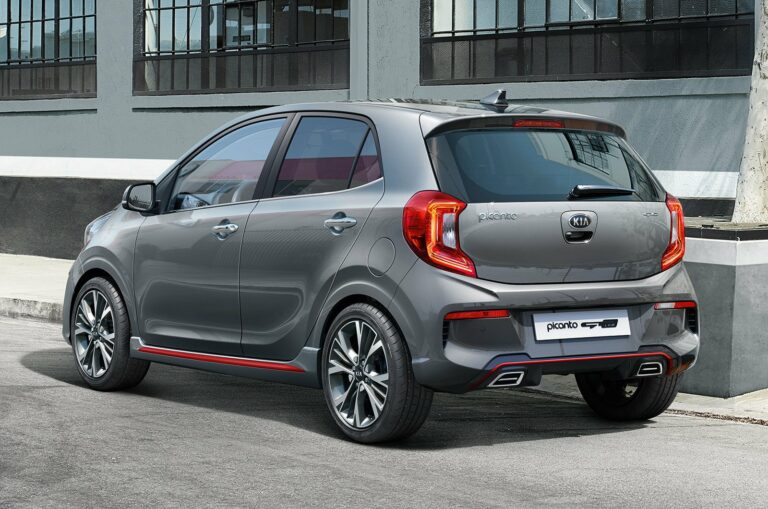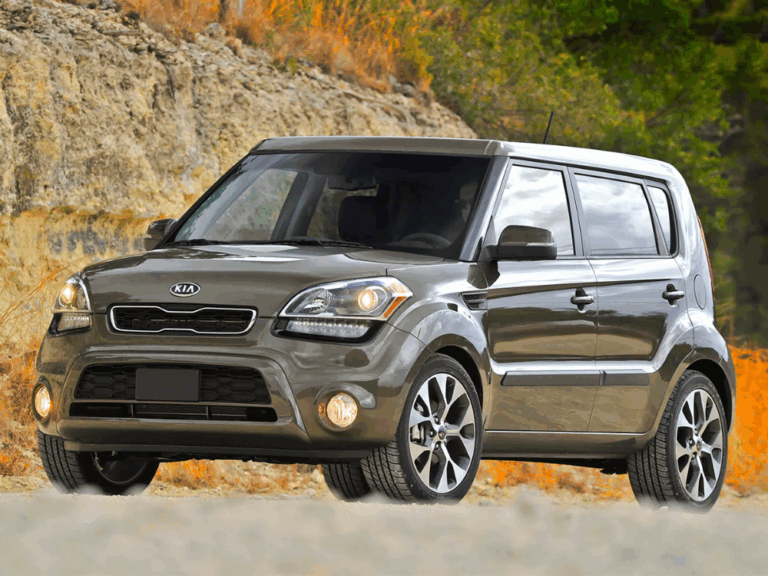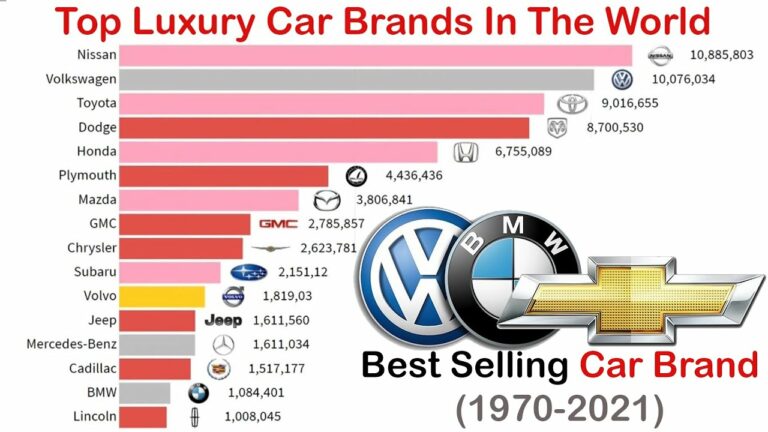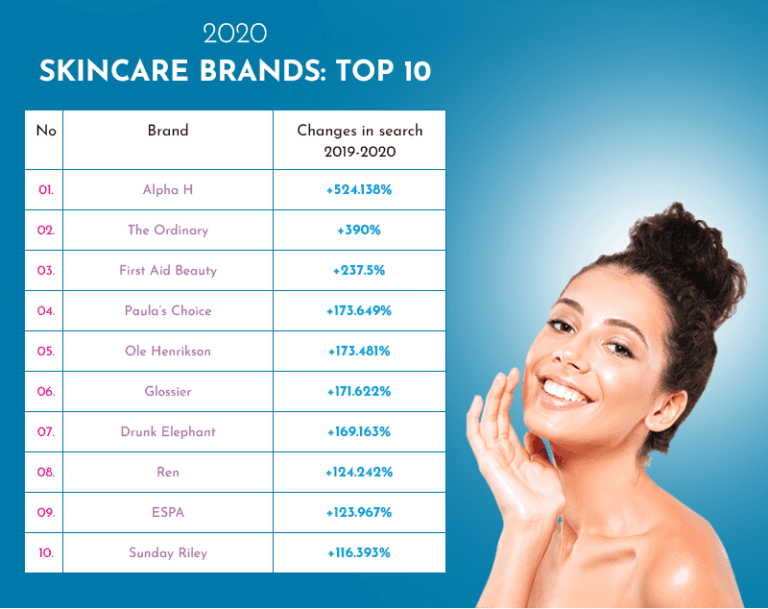What Is The Best Car Tire Brand? A Comprehensive Guide to Choosing Your Perfect Set
What Is The Best Car Tire Brand? A Comprehensive Guide to Choosing Your Perfect Set cars.truckstrend.com
Choosing the "best" car tire brand is akin to searching for the "best" pair of shoes – what’s perfect for a marathon runner won’t suit a ballerina. The concept of a single "best" tire brand is a myth, as tire excellence is highly subjective and depends entirely on your specific vehicle, driving habits, local climate, and performance priorities. Tires are arguably the most critical component connecting your vehicle to the road, directly impacting safety, handling, fuel efficiency, and ride comfort. Investing wisely in them isn’t just about performance; it’s about peace of mind.
This comprehensive guide will debunk the "best brand" fallacy and instead equip you with the knowledge to identify the best tires for your needs, exploring the leading brands, crucial considerations, and practical advice to make an informed decision.
What Is The Best Car Tire Brand? A Comprehensive Guide to Choosing Your Perfect Set
Understanding "Best": Factors That Define Your Ideal Tire
Before diving into specific brands, it’s essential to define what "best" means for you. Several key factors influence this decision:
- Driving Style: Are you an aggressive driver who values sharp handling and maximum grip, or do you prefer a smooth, quiet, and comfortable ride for daily commutes?
- Vehicle Type: A high-performance sports car demands different tires than a heavy-duty pickup truck or a fuel-efficient sedan. Tire specifications like load index and speed rating are crucial here.
- Climate and Weather Conditions: Do you live in an area with heavy snow and ice, or is it mostly dry and warm year-round? This dictates the need for all-season, summer, or dedicated winter tires.
- Road Conditions: Do you primarily drive on smooth highways, navigate rough city streets, or venture off-road?
- Budget: While tires are an investment in safety, there’s a wide price range. Knowing your budget helps narrow down options without compromising essential performance.
- Performance Priorities: What matters most to you?
- Longevity (Treadwear): How many miles do you expect to get out of your tires?
- Grip and Handling: For optimal control and responsiveness, especially in challenging conditions.
- Ride Comfort and Quietness: For a more enjoyable driving experience.
- Fuel Efficiency: Tires with low rolling resistance can save you money at the pump.
- Wet/Dry Traction: Critical for safety in varying conditions.

Top Contenders: Brands Known for Excellence
While there isn’t one "best," certain brands consistently rank high across various categories due to their commitment to research, development, and quality manufacturing. Here are some of the most reputable tire brands, categorized by their general strengths:
Premium Performance & Innovation
- Michelin: Often considered the gold standard, Michelin excels in all categories, offering exceptional wet and dry grip, long tread life, and a comfortable, quiet ride. They innovate in performance, touring, and all-season segments. Their tires often come at a premium price.
- Goodyear: A leading American brand with a vast range of products, Goodyear is known for its strong all-season performance, durability, and a wide selection for various vehicle types, including trucks and SUVs.
- Pirelli: Synonymous with performance and luxury vehicles, Pirelli tires offer superb handling, precise steering response, and excellent grip, especially in their summer and performance lines. They might sacrifice some comfort and tread life for this sportiness.
- Continental: Known for balancing performance with comfort, Continental offers excellent wet braking, quiet rides, and good fuel efficiency across its touring and performance lines. They are often original equipment (OE) on many European luxury cars.
- Bridgestone: A global giant, Bridgestone provides a diverse portfolio, from high-performance to durable truck tires. They are known for solid all-around performance, good wet traction, and reliable quality.
Reliable Value & Specialty
- BFGoodrich: A Michelin subsidiary, BFGoodrich is famous for its robust off-road and all-terrain tires, offering exceptional durability and traction for trucks and SUVs. They also produce reliable passenger car tires.
- Cooper Tires: An American brand offering excellent value, Cooper provides a good balance of performance, durability, and affordability, particularly in their all-season and truck tire lines.
- Yokohama: A Japanese brand known for its diverse range, including high-performance, all-season, and truck tires. Yokohama often provides good grip and a comfortable ride at competitive prices.
- Hankook: A rapidly growing Korean brand that offers a strong blend of performance and value. Hankook tires often impress with their wet traction, quietness, and respectable tread life across various segments.
- Nokian Tyres: A Finnish company specializing in winter tires, Nokian is a world leader in snow and ice performance. Their Hakkapeliitta line is legendary for extreme winter conditions. They also produce excellent all-season and all-weather tires.
Decoding Tire Types: Matching Your Needs
The "best" brand often depends on the type of tire you need:
- All-Season Tires: Designed for year-round performance in moderate climates. They offer a balance of wet, dry, and light snow traction. Pros: Convenience, cost-effective. Cons: Not optimal for extreme winter or high-performance summer conditions.
- Summer Performance Tires: Optimized for warm weather, offering superior grip, handling, and braking on dry and wet roads. Pros: Excellent performance. Cons: Not suitable for cold temperatures or snow.
- Winter/Snow Tires: Feature special rubber compounds and tread patterns designed to maintain flexibility and grip in freezing temperatures, snow, and ice. Pros: Unmatched safety in winter. Cons: Reduced performance and faster wear in warm weather, need to swap seasonally.
- All-Terrain (A/T) & Mud-Terrain (M/T) Tires: Built for trucks and SUVs, offering aggressive tread patterns for off-road traction while still being capable on pavement (A/T) or strictly for extreme off-road use (M/T). Pros: Superior off-road capability. Cons: Noisier, less comfortable, and less fuel-efficient on pavement.
- Touring Tires: Focus on comfort, quietness, and longer tread life, often found on sedans and minivans. They prioritize a smooth ride over aggressive performance.
Key Tire Performance Metrics to Evaluate
When comparing tires, look beyond just the brand name. These metrics provide valuable insights:
- UTQG (Uniform Tire Quality Grading):
- Treadwear: A relative wear rate. A tire with a 400 treadwear rating theoretically lasts twice as long as one with a 200 rating. Higher numbers mean longer life.
- Traction (A, B, C): Measures a tire’s ability to stop on wet pavement. "AA" is the highest, "C" is the lowest.
- Temperature (A, B, C): Indicates a tire’s resistance to heat generation. "A" is the highest, meaning it dissipates heat better.
- Speed Rating (e.g., H, V, W, Y): The maximum speed a tire can safely sustain. Match or exceed your vehicle’s requirements.
- Load Index: The maximum weight a tire can support when properly inflated. Crucial for heavy vehicles.
- Noise Level: Often indicated by decibel ratings in reviews or manufacturer specifications.
- Rolling Resistance: Affects fuel economy. Lower rolling resistance means less energy lost, improving MPG.
The Tire Buying Process: A Step-by-Step Guide
- Identify Your Needs & Priorities: Revisit the "Understanding ‘Best’" section. What kind of driver are you? What’s your climate?
- Check Your Current Tire Size: It’s on the sidewall (e.g., P215/65R15 95H). Your owner’s manual or driver’s side door jamb also has this info.
- Read Independent Reviews: Websites like Tire Rack, Consumer Reports, and various automotive publications offer invaluable real-world test data and user reviews.
- Compare Specific Models, Not Just Brands: A brand might be great, but a specific model within that brand might be better suited for you than another.
- Consult with Professionals: Reputable tire shops can offer tailored advice based on your vehicle and local conditions.
- Consider Installation and Balancing: The best tires are useless if not properly installed and balanced. Ensure this is part of your purchase.
- Understand Warranties: Most tires come with a treadwear warranty and a manufacturer’s defect warranty.
Maintenance for Longevity and Performance
Even the "best" tires won’t perform optimally or last long without proper care:
- Regular Pressure Checks: Maintain recommended tire pressure to ensure even wear, optimal handling, and fuel efficiency.
- Tire Rotations: Rotate your tires every 5,000-8,000 miles to promote even wear across all four tires.
- Wheel Alignment: Ensure your wheels are properly aligned to prevent uneven tire wear and improve handling.
- Visual Inspections: Regularly check for cuts, bulges, punctures, or uneven wear patterns.
- Tread Depth: Replace tires when tread depth reaches 2/32nds of an inch, or sooner in snowy/wet conditions.
Estimated Price Table for Leading Tire Brands & Types
This table provides general price ranges (per tire, excluding installation) for various tire types from top brands. Prices vary significantly based on tire size, specific model, retailer, and promotions.
| Tire Type | Example Brands | Typical Price Range (per tire) | Key Characteristics & Ideal Use Cases |
|---|---|---|---|
| Premium All-Season | Michelin, Continental, Goodyear, Bridgestone | $150 – $300+ | Excellent balance of comfort, quietness, wet/dry traction, and decent tread life. Ideal for sedans, SUVs in moderate climates. |
| Mid-Range All-Season | Cooper, Hankook, Yokohama, Kumho | $100 – $200 | Good all-around performance and value. Suitable for most daily drivers seeking reliability without breaking the bank. |
| Performance Summer | Pirelli, Michelin, Goodyear, Continental | $180 – $400+ | Superior grip, handling, and braking in warm, dry/wet conditions. For sports cars, performance sedans. |
| Dedicated Winter/Snow | Nokian, Michelin, Bridgestone, Goodyear, Pirelli | $150 – $350+ | Unmatched traction on snow and ice. Essential for safety in harsh winter climates. |
| All-Terrain (A/T) | BFGoodrich, Goodyear, Cooper, Toyo | $180 – $400+ | Robust, aggressive tread for off-road capability while still being pavement-friendly. For trucks, SUVs. |
| Touring | Michelin, Continental, Goodyear, Bridgestone | $130 – $280 | Prioritizes comfort, quietness, and long tread life. Ideal for sedans, minivans, and comfortable daily driving. |
Note: Prices are estimates and subject to change. Always verify current pricing with specific retailers and for your exact tire size.
Frequently Asked Questions (FAQ)
Q1: Is there truly one "best" tire brand?
A1: No, there isn’t one universally "best" tire brand. The best brand and specific tire model depend entirely on your individual driving needs, vehicle type, local climate, and budget.
Q2: How often should I replace my car tires?
A2: Tires should be replaced when their tread depth reaches 2/32nds of an inch (the legal minimum in many places) or if they show signs of damage (cracks, bulges, punctures). Regardless of tread, most manufacturers recommend replacing tires after 6-10 years, as the rubber compounds degrade over time, even with low mileage.
Q3: What do the numbers and letters on my tire’s sidewall mean?
A3: They provide crucial information:
- P215/65R15 95H:
- P: Passenger car tire.
- 215: Tire width in millimeters.
- 65: Aspect ratio (sidewall height as a percentage of width).
- R: Radial construction.
- 15: Rim diameter in inches.
- 95: Load Index (maximum weight capacity).
- H: Speed Rating (maximum safe speed).
- UTQG (Treadwear, Traction, Temperature): Additional ratings for performance and longevity.
Q4: Are more expensive tires always better?
A4: Not always, but premium tires often incorporate advanced technologies, higher quality materials, and more extensive research and development, which translates to better performance in specific areas (e.g., wet braking, quietness, longevity, fuel efficiency). However, a mid-range tire might be perfectly adequate and offer excellent value for typical daily driving.
Q5: Can I mix tire brands on my car?
A5: It is strongly recommended not to mix tire brands or even different tire models on the same axle, and ideally, on the entire vehicle. Different tires have varying tread patterns, compounds, and performance characteristics, which can negatively impact handling, braking, and stability, especially in adverse conditions. If you must replace only two tires, ensure they are the same brand, model, and type as the remaining two, and ideally, install the new tires on the rear axle.
Conclusion
The quest for "the best car tire brand" leads to a nuanced understanding: there’s no single champion, but rather a landscape of excellent brands each excelling in different domains. By thoroughly assessing your personal driving needs, understanding the various tire types, and evaluating key performance metrics, you can confidently navigate the market. Investing in the right tires is an investment in your safety, comfort, and the overall performance of your vehicle. Choose wisely, maintain them diligently, and enjoy the journey with optimal grip and peace of mind.





